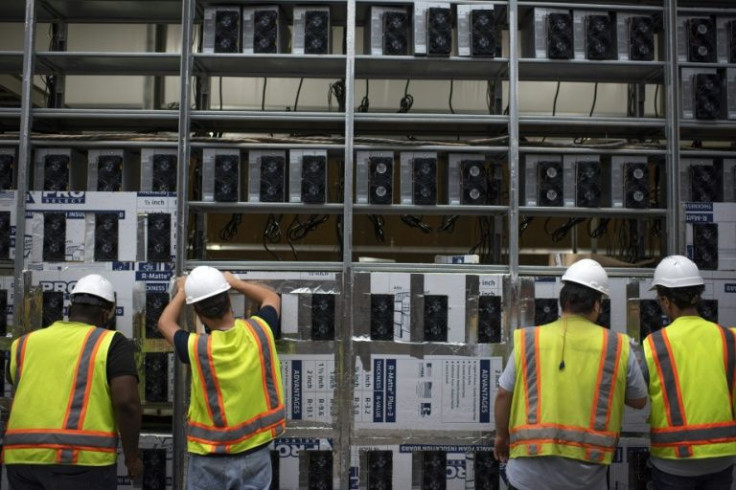Which States Are Seeing The Fastest Recovery On Employment Since The Start Of COVID-19?
The U.S economy has been treading a steady path towards recovery after two years of disruption and uncertainty created by the COVID-19 pandemic.
After the virus began to spread across the nation by March 2020, unemployment surged as businesses closed their doors and more Americans were out of work. By April 2020, the unemployment rate reached 14.8%, the highest on record since 1948.
Fast forward almost two years and the unemployment rate has fallen to 4.2% and initial unemployment claims have reached close to historic lows. However, the recovery has played out differently in each state and some have seen stronger recoveries than others.
In a recent study by credit-scoring website WalletHub that was released on Dec. 9, researchers produced a ranking of which states experienced stronger recoveries than others. A state’s ranking was based primarily around its level of initial unemployment claims since the start of the pandemic and where they were as of Dec. 2’s initial claims report.
According to WalletHub’s research, the top five states that saw the most recovery as of early December were Georgia, Nebraska, Kentucky, Kansas and South Carolina. On the other hand, the five states that scored the lowest were Indiana, Alaska, Tennessee, New Mexico and North Carolina.
For states that have recovered the most since the pandemic, the best performers were Kansas, Florida, New Hampshire, South Carolina and South Dakota. The bottom half was led by West Virginia, New Mexico, Delaware, Rhode Island and the District of Columbia.
Beyond the states’ level of unemployment claims however, are a series of other factors that influence a state’s ranking. One major factor that varied from state to state was the leading source of employment in each and how much these industries were impacted by COVID-19.
Jill Gonzalez, a WalletHub analyst, explained to International Business Times that the states that saw a slower pace to their recovery were those most affected when the pandemic started. In these states, Gonzalez said, they relied on industries like tourism, transportation and hospitality, all of which were disrupted by COVID-19. In contrast, those that saw the most recovery relied on sectors like manufacturing, logistics and agriculture.
Indeed, states like New York, California and Florida whose economies supported high levels of jobs in these sectors were dealt a heavy blow by the pandemic. As the economy gradually reopened, these jobs however began to recover. During the last quarter of 2021, the leisure and hospitality sectors have been among the strongest engines for job gains nationally.
Several of the top-performing states in the WalletHub study were among those that terminated enhanced unemployment benefits for their citizens early. These states, largely led by Republican governors, ended these benefits sooner under the argument that it was creating a disincentive to getting back to work.
Asked about the difference between states that ended benefits earlier than those that did not, Gonzalez said that it played a marginal role if anything.
"Half of the states that ended benefits early rank in the top half in terms of unemployment claims recovery,” she said. “At the same time, almost half of those that didn't end benefits early ranked in the top half as well.”
“While states that ended benefits early have a slight advantage, the numbers don't point to a direct correlation between ending unemployment benefits and a state's recovery."

This factor also held true for another contentiously partisan aspect of the recovery; vaccine mandates.
On Sept. 9, President Biden announced a nationwide vaccine mandate for employers with 100 or more employees that earned the ire of his Republican opponents. Almost instantly, Republican governors and attorney generals declared their intent to fight Biden’s executive order through lawsuits and state-level bans on mandates.
Republican officials argue that the mandates unfairly discriminate against those who choose to remain unvaccinated and only fuel job losses. However, Gonzalez argues that it is unclear if states that initiated mandates fared worse than those that did not.
"Six out of the top ten states with the quickest unemployment claims recovery and five out of the bottom states that are recovering the slowest do not have a COVID-19 vaccine mandate in place," she told IBT. "These numbers are not sufficient evidence of a direct correlation between the two factors."
The future of a nationwide vaccine mandate remains uncertain as Biden’s executive order works its way through federal court. However, concern about how to continue the fight against COVID-19 has taken on additional urgency since the Omicron variant emerged in southern Africa in late November.
Even as Omicron attracts increasing attention from public health officials, the previous Delta variant has not yet been vanquished. During the summer, Delta prompted a surge in new infections that pushed hospitals in some states towards their limits before tapering off in the fall.
While Delta pushed up the nationwide death toll and hospitalization figures, officials noted that it did not appear to dramatically alter the trajectory of the economic recovery. Gonzalez too noted that its impact was uncertain, but existing data suggest any damage was largely absorbed.
"We don't have data quantifying the exact impact of the Delta variant on unemployment,” said Gonzalez.
“However, we know that since the worst part of the COVID-19 crisis, the United States has managed to recover 18.5 million jobs out of the 22.4 million lost due to the pandemic. This would indicate that the Delta variant did not set the recovery back significantly."
© Copyright IBTimes 2024. All rights reserved.




















